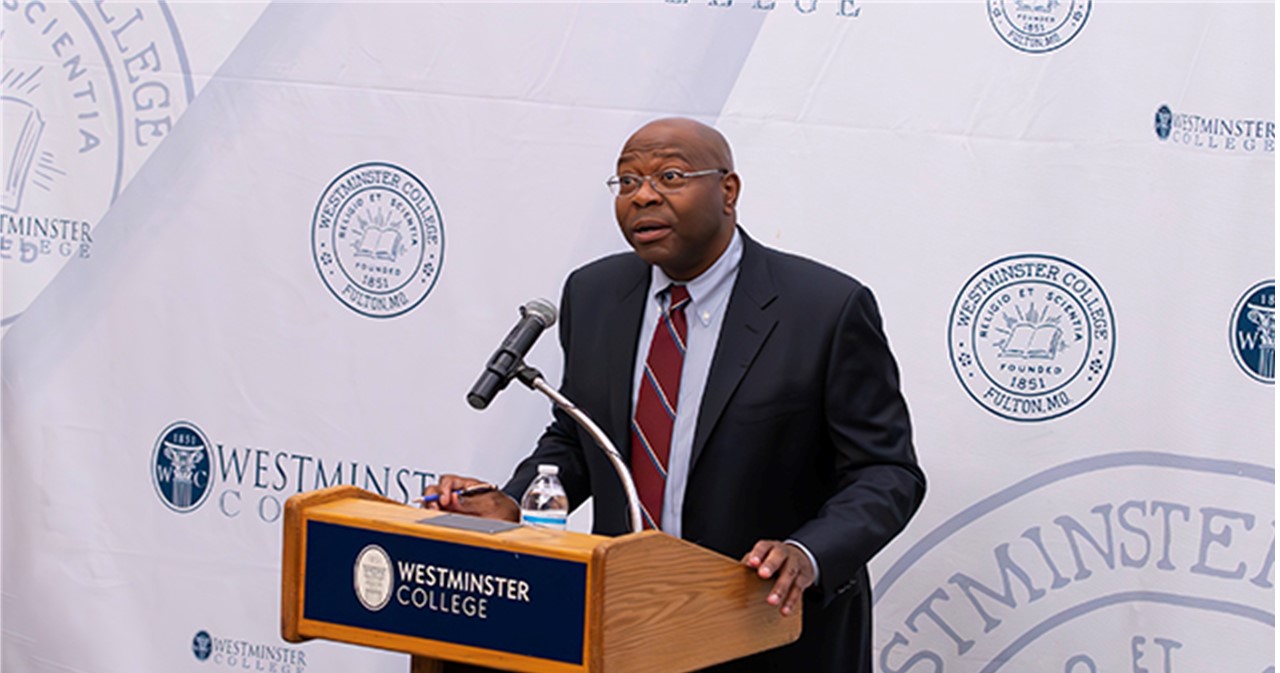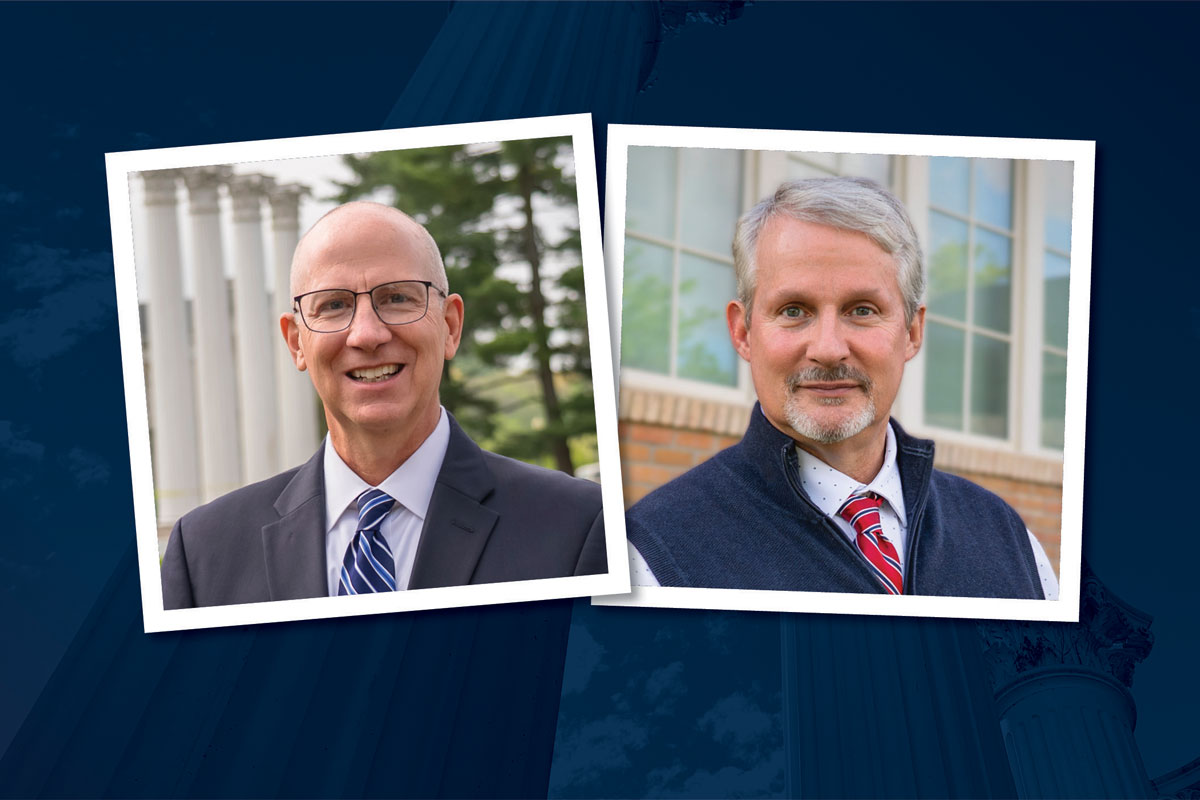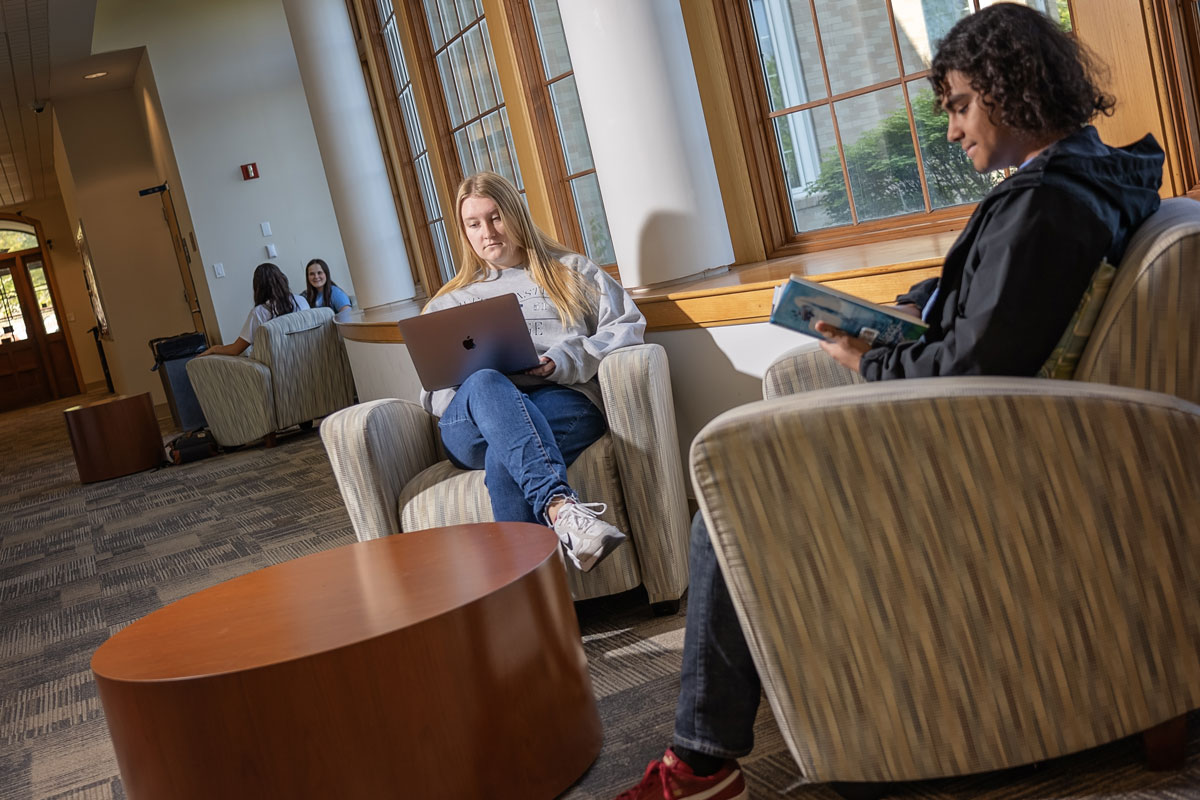Wall Street Journal columnist and Manhattan Institute Senior Fellow Jason Riley was enthusiastically received during the Third Annual Brauer Lecture at 6 p.m. on Wednesday, April 17.
Students, faculty, staff and area residents gathered in Coulter Science Center Lecture Hall for Riley’s lecture titled “Why Thomas Sowell Matters.” Many asked follow-up questions during a question-and-answer session following the lecture.
During his presentation, the 2018 Bradley Prize winner discussed the origins of his interest in conservative/libertarian American economist and political commentator which resulted in Riley’s 2021 book on the now-93-year-old Black columnist, Maverick. Riley also narrated the documentary Thomas Sowell: Common Sense in a Senseless World.
Riley’s lecture focused on freedom of speech in a climate of “cancel culture,” when healthy debate on opposing viewpoints can be discouraged instead of encouraged on college campuses and elsewhere today. Riley admitted his opinions are not always popular, which is something Sowell experienced during his lengthy career.
During his lecture, the Buffalo, New York, native encouraged the Westminster audience to remain true to the principles of a liberal arts education and think critically about ideas in order to draw their own conclusions on topics. He also encouraged the audience to dive into Sowell’s more than 40 books written over six decades as well as his numerous essays and countless syndicated columns spanning more than 30 years, from 1984 to 2016.
In discussing Sowell’s reputation for stating counter arguments to mainstream ideas, Riley summarized, “Sowell is a rare species. He’s an honest intellectual. He’s someone who has consistently sought out the truth, regardless of whether it made him popular.”
Riley frequently writes about politics, economics, education, immigration and social inequality in his Wall Street Journal column, “Upward Mobility.” He often tackles these subjects as a commentator for a variety of national television news outlets and in his other books, including the most recent, The Black Boom, which focuses on Black economic progress prior to the COVID-19 pandemic.
Prior to Riley’s remarks, Donald P. Lofe, Jr., President and Chief Transformation Officer of Westminster College, provided background information on the Brauer Lecture, while senior Lindsey Bennett, ’24 ΚΑΘ, introduced Riley to the audience.
Ashley Dodson, Assistant Professor of Leadership Studies and Coordinator of the Brauer Lecture, conducted the question-and-answer session following the lecture. She later concluded that event remained true to its mission.
“Mr. Riley’s lecture delivered on its promise to provoke critical thinking and encourage hard conversations within our campus community. We’re fortunate that our students, faculty and staff do not shy away from difficult topics and engage each other with respect and a desire to continuously learn from one another,” Dodson reflected. “We’re grateful to the Brauers for this opportunity and are looking forward to next year’s event.”
Sponsored in conjunction with the Olin School of Business at Washington University in St. Louis, Missouri, the Brauer Lecture Series seeks to highlight the leadership characteristics of its speakers. Featured lecturers are encouraged to discuss how their values guide their daily lives while also highlighting the importance of free-market economics. This lecture series is designed to bring to campus world-renowned speakers who will address the contributions of free enterprise to economic growth, public policy, and world affairs. The Brauer Lecture Series is made possible by a generous gift from Stephen F., ’67 ΦΔΘ, and Camilla T. Brauer of St. Louis.
Sarah Rummel Backer is the Director of Media Relations and Senior Writer at Westminster College in Fulton, Missouri. A proud Westminster graduate, Sarah has more than 20 years of experience in marketing and strategic communications in the areas of higher education, medicine, agriculture, and the private business sector.






